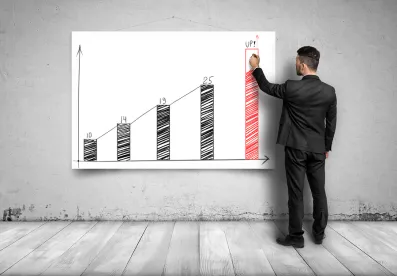In a unanimous opinion authored by Justice Sonia Sotomayor and issued on June 5, the U.S. Supreme Court reversed a decision of the U.S. Court of Appeals for the Tenth Circuit, holding that SEC disgorgement constitutes a penalty under 28 U.S.C. § 2462, thereby making such actions subject to the five-year limitations period for “an action, suit or proceeding for the enforcement of any civil fine, penalty or forfeiture.” In the case, Kokesh v. Securities and Exchange Commission , the court found the “SEC disgorgement… bears all the hallmarks of a penalty: It is imposed as a consequence of violating a public law and it is intended to deter, not compensate.”
The ruling resolves a circuit split and will have a far-reaching impact on current and future SEC investigations.
While many SEC disgorgement-related cases cover conduct well within the five-year limitations period of Section 2462, others often involve long, in-depth investigations that can proceed over a significant period of time. Fraud activity such as Ponzi schemes or very large FCPA cases may continue for many years. This ruling will likely cause the SEC to keep a much closer eye on the clock as it proceeds with investigative efforts. The SEC will need to review current longstanding investigations to determine whether it will be able to move forward with disgorgement actions within the limitations period, or need to abandon them, perhaps, altogether.
The ruling will significantly reduce disgorgement that had been ordered against Charles Kokesh, a New Mexico investment advisor. Kokesh appealed a judgment ordering him to pay nearly $35 million in addition to $18 million in prejudgment interest and a $2.4 million penalty on allegations he misappropriated funds from business development companies between 1995 and July 2007. The disgorgement that was ordered constituted all of Kokesh’s allegedly ill-gotten profits during the scheme’s entirety.
The Kokesh appeal came to the court to address, in part, a split that had developed among various circuits. Previously, the U.S. Court of Appeals for the District of Columbia and for the First Circuit found Section 2462 did not apply to disgorgement proceedings because they were not “a penalty.” Conversely, the U.S. Court of Appeals for the Eleventh Circuit had determined that disgorgement was effectively the same as a forfeiture action, thus subject to the five-year limitations period. The court’s decision was a rebuke of the SEC’s longstanding practice of seeking disgorgement for conduct taking place longer ago than five years, and in many instances much more than five, prior to initiation of a disgorgement action.
Ruling addresses equitable remedy, punitive
The court’s ruling also took a far different view of disgorgement proceedings than that which has long been advanced by the SEC: that disgorgement was an equitable remedy.
The significance of the decision perhaps can be best illustrated by how it impacts the Kokesh matter itself, where $29.9 million of $34.9 million in disgorgement, plus a significant portion of the interest imposed, concerned profits earned beyond the five-year limitations period. Based upon the court’s ruling, Kokesh will only pay approximately $5 million in disgorgement, together with interest and a $2.4 million penalty.
Justice Sotomayor’s opinion is also noteworthy for finding that disgorgement is imposed for punitive purposes, relying upon many trial courts that have consistently found the primary purpose of disgorgement is to deter violations by seizing the ill-gotten gains of alleged violators. Justice Sotomayor further noted that disgorgement is punitive because while disgorged funds may be returned to aggrieved investors, they can also be sent to the Treasury.
Intriguing footnote
Of perhaps greater concern, however, is a footnote in the Kokesh opinion. While Justice Sotomayor focused her opinion on determining whether disgorgement functions as a penalty, a footnote made clear that nothing in the opinion addressed the question of “whether courts possess authority to order disgorgement in SEC enforcement proceedings or on whether courts have properly applied disgorgement principles in this context.” By this footnote, the court may be signaling an additional open issue going to the core of whether such disgorgement actions have any legal basis. However, that appears to be an issue for another day. It will, no doubt, be seized upon by litigants in future disgorgement cases as part of their defense.
The decision represents a clear victory for those involved in the securities market who are targets of government enforcement actions by prohibiting the government from pursuing stale claims at its whim. Does the footnote signal an opening of the door on the legality of disgorgement? A more conservative court could rule that statutory authority for such action is necessary.




 />i
/>i
